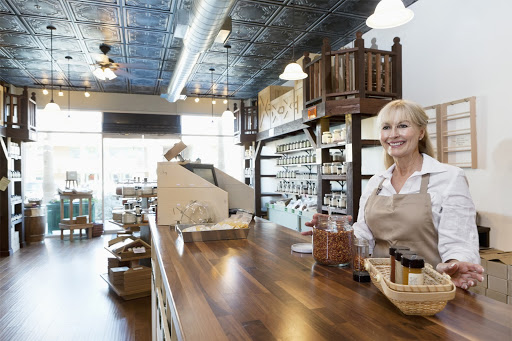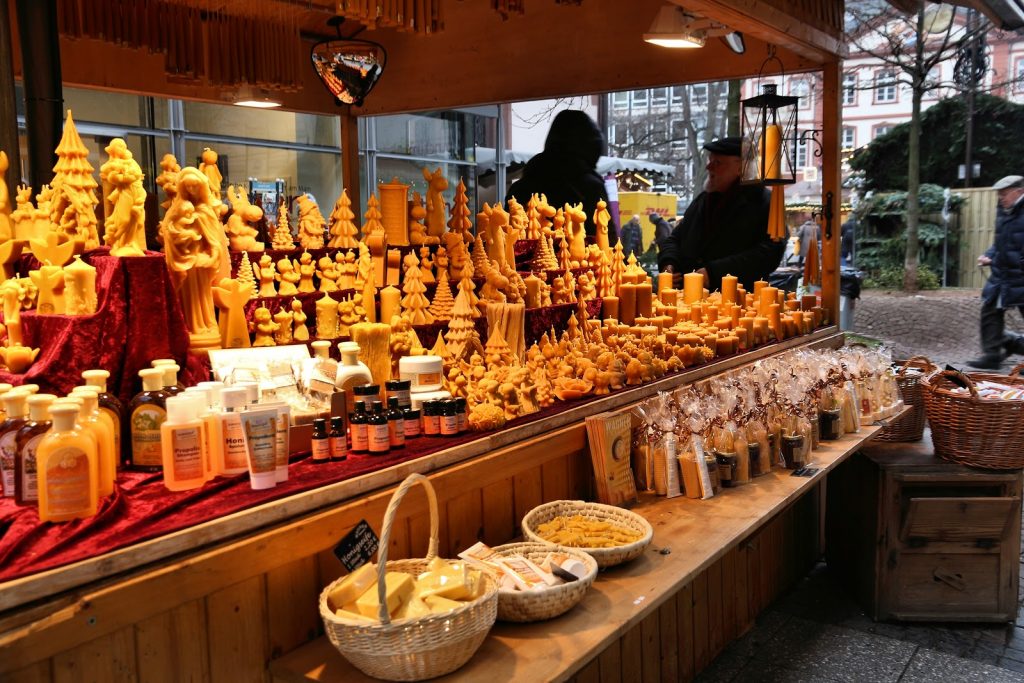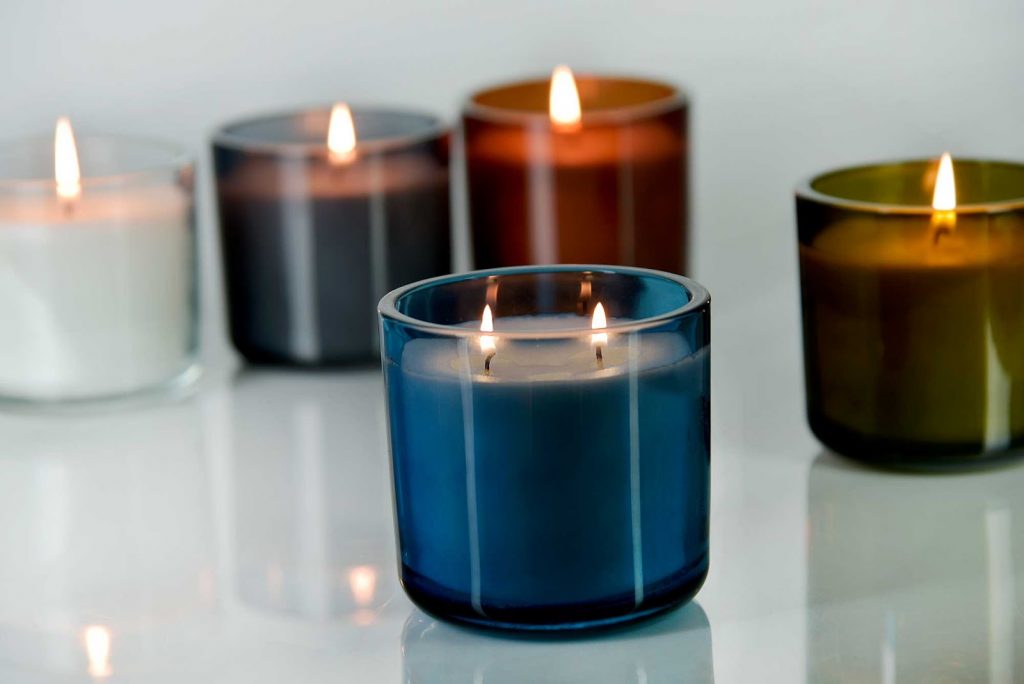Close your eyes and think back to some of your favorite memories — baking with family, strolling on the beach or playing in the snow. What immediately draws you in? Can you smell the familiar fragrance of a signature family recipe? Maybe your mind is wandering to the salty smell of the sea. Whether you know it or not, scent pairs with memory so acutely that you may find yourself taken back to one of these experiences just by taking a whiff of a candle or walking by a cozy storefront.
Trusting Your Senses: The Science of Scent Marketing
Yes, even storefronts can conjure up a specific feeling whether you are a customer or just passing by. Have you ever walked past a Pottery Barn or a Yankee Candle store without feeling warm or comforted? That’s the point, and it’s what drives so much traffic to such stores without all of the heavy lifting that others must do to gain conversions.
How Scents Influence Emotion
The science of scent is a game changer in the sales world that helps maintain your image, increase foot traffic, and keep customers in your store. Shops that smell nice reflect cleanliness and amiability, thereby adapting a ‘store’ into a ‘home’ for customers.
Studies have shown that scent can produce involuntary emotion or reactions, and that smelling a scent that is associated with positive memories can heighten brain activity.
Not only will your store smell fantastic, but your customers will feel great and trust your brand without necessarily knowing why. So, why not feature a charming aroma in your store to remind folks of the good times!
Yes, there is a science behind scent marketing that sets it apart from the visual aesthetic of your everyday store. When it comes to our senses, smell leads the pack because it is deeply paired with emotion and memory. So what is the connection between our emotions and memory? Well, our olfactory gland controls how we recognize scent and the limbic system commands emotion and memory.
Authorities on scent say that up to 75% of our daily emotion is affected by smell. But now that we know nature’s little secret, how can we harness it to gain more clientele?
Using the Right Scents in Your Store
A customer could be drawn to your store because of a particular smell you are evoking which could trigger a familiar memory like learning how to make Grandma’s famous dessert. Inversely, scent can trigger negative memories and emotions as well. Learning how to ditch the scents that affect clients negatively and stick to the sunny side of things is key. Picking the right scents will boost your brand with olfactory marketing and gain the trust of your customers.
Scent marketing is a subtle way to trick a customer’s mind into feeling at ease. Owing to this, they trust that your products are superior to others on the market, stay longer in your store, and buy more.
Studies show that 59% of shoppers spend money in a store that features an enticing aroma which reiterates the fact that scent marketing is about cultivating an experience for customers. If you’re basing your brand off of a concept like “hand-crafted”, then wood, leather, and musk-related scents can help solidify your brand in a customer’s mind.
If you’re centering your brand around the idea of “fresh” and “organic” products, scents like citrus, herbs, and fresh linen will help customers feel at ease and trust that your claims are true.
Are you considering how investing in scent marketing can help in the long run? Studies have shown that people can associate scents with memories with up to 65% accuracy within a year of the initial encounter. Needless to say, your brand will remain on the customer’s mind long after they’ve made their purchase.

Why Scent Marketing Works
Scent marketing works because of the correlation of a specific scent to a customer’s memory. This connection is what drives them towards your business.
Creating Identity: Signature Scents and Aroma Billboards
Think about mainstream clothing chains, like Hollister or Abercrombie & and Fitch. These two are infamous for their heavy scent marketing you can easily recognize, even if you’ve never shopped there. That’s because these stores are heavily associating a distinct, strong scent with their brand that can draw customers in from the street to browse their products. This is called a signature scent.
By saturating the area with a signature scent, the stores keep drawing customers back. Moreover, the customers feel compelled to take a peek at what the store has to offer. Signature scents promote the idea of exclusivity and luxury when it comes to branding.
Don’t feel pressured to develop a signature scent for your brand; plenty of businesses capitalize on scent marketing without one. By choosing a bold scent and permeating the air with it, you will still promote the main concept that your brand centers around, drawing attention to your store from passers by. This is an aroma billboard — a bold smell that makes a statement.
Setting the Mood: Thematic and Ambient Scents
Keeping with the idea of branding, businesses might employ a scent to make customers feel a sense of belonging or to establish a theme. This is called a thematic scent, and it is meant to compliment your atmosphere.
Scents like lavender or lemongrass work perfectly for spas and beauty parlors. Meanwhile, smells like fresh linen are great for retail stores to prompt the idea of cleanliness and safety. These scents promote the ambiance of the space, make clients feel at ease and have confidence in your brand.
Last but not least, ambient scents can cover unseemly smells or fill a void. For example, the mix of a hundred different candles in a shop might not smell nice altogether, so the business owner might attempt to cover the smell uniformly, or perhaps section off the candles so the store can take on different smells in different areas.
By connecting with customers on a deeper sensory level and promoting themes and emotions as a part of your brand, you are creating an experience for the shopper that takes away the stress that shopping can bring.
Certain scents are also found to trigger certain emotions; this can help you decide which scent to pick for your store! For example, if you want a calm and clean aroma for your candle shop, you might consider vanilla bean. To quote a study — 63% of MRI patients had reduced anxiety after smelling a heavy vanilla scent compared to the 4% who didn’t report reduced anxiety.
One study has shown that customers would not only purchase more products in stores that smelled good, but that they would spend more money on the same products as well. Some major retailers saw an increase in conversions up to a shocking 80% when they began employing scent marketing tactics. A convenience store that started wafting the scent of coffee near their gas pumps saw a 300% increase in their coffee sales.

Let’s Get Nosey: Real World Examples of Scent Marketing
We’ve briefly covered some great examples of stores that are currently employing scent marketing, and even more brands just onboarding.
Bloomingdales switched up scents in each department to pair with the customer base that shops in those specific sections. Meanwhile, industry titans like Starbucks have become passionate about promoting their rich coffee smell. So much so that they changed how they cook their egg-based products, not distracting from aroma of the roasted beans!
And if you’re just now considering using scent marketing for your brick and mortar store, perhaps Inditex can be your role model for your soaps, cosmetics or candle shop. Inditex, parent company of Zara, has achieved great success in getting customers to stay longer and spend more in their stores with scent marketing.
Notably, their home goods department, selling products like candles and room diffusers, follows the principle of using an aroma that people want to smell in their own homes.
Just remember, all scents are not created equally and you should be strategic about the types of scents you choose. As we mentioned earlier, some smells can be related to bad memories for certain customers, so keeping to a generally beloved scent can help avoid any unpleasant feelings for clientele. Think about cultivating a positive experience and what that means within your brand, theme, and concept for your shop.
Starting a Scent Marketing Strategy
Now, what’s our strategy to get started with scent marketing?
First, center around your brand’s main theme. What is the appearance of your store and the message that it is trying to convey to the world?
Second, what types of emotions are you trying to trigger in customers? What characteristics describe your products and your shoppers? How can you capitalize on the “vibe” of your customer base? Once you have a general understanding of these concepts, choosing a scent should be a breeze!
We discussed several types of scent marketing tactics. So, deciding the best course of action for your business will determine your approach to scent marketing. Consider if you’d like the aroma billboard to draw customers from the street or the thematic scents that subtly match your store’s theme and message. Keep in mind that customers may prefer individualized scents over branded scents. Not everyone wants to exit a chain clothing store smelling of cologne, inhaling floral scents, or being peppered with food based aromas.
What scents do you think would work well for your brand? It’s time to build a trusting relationship with your clients, and scent marketing can help you do it!
Check out our blog page for more helpful articles for your business. And for the best in glass packaging options for your candles, cosmetics, and more, take a look at Glassnow’s selection here.


